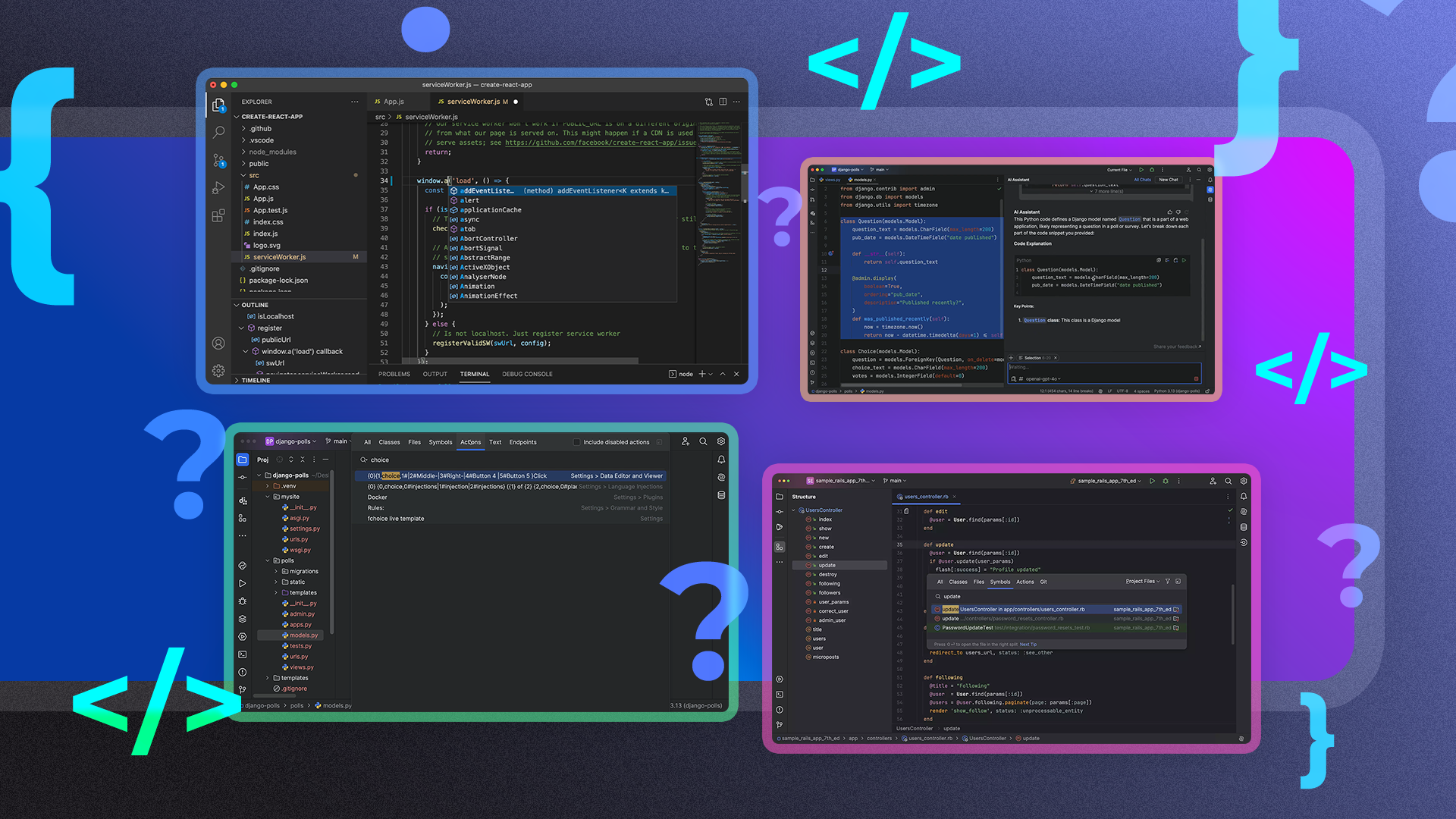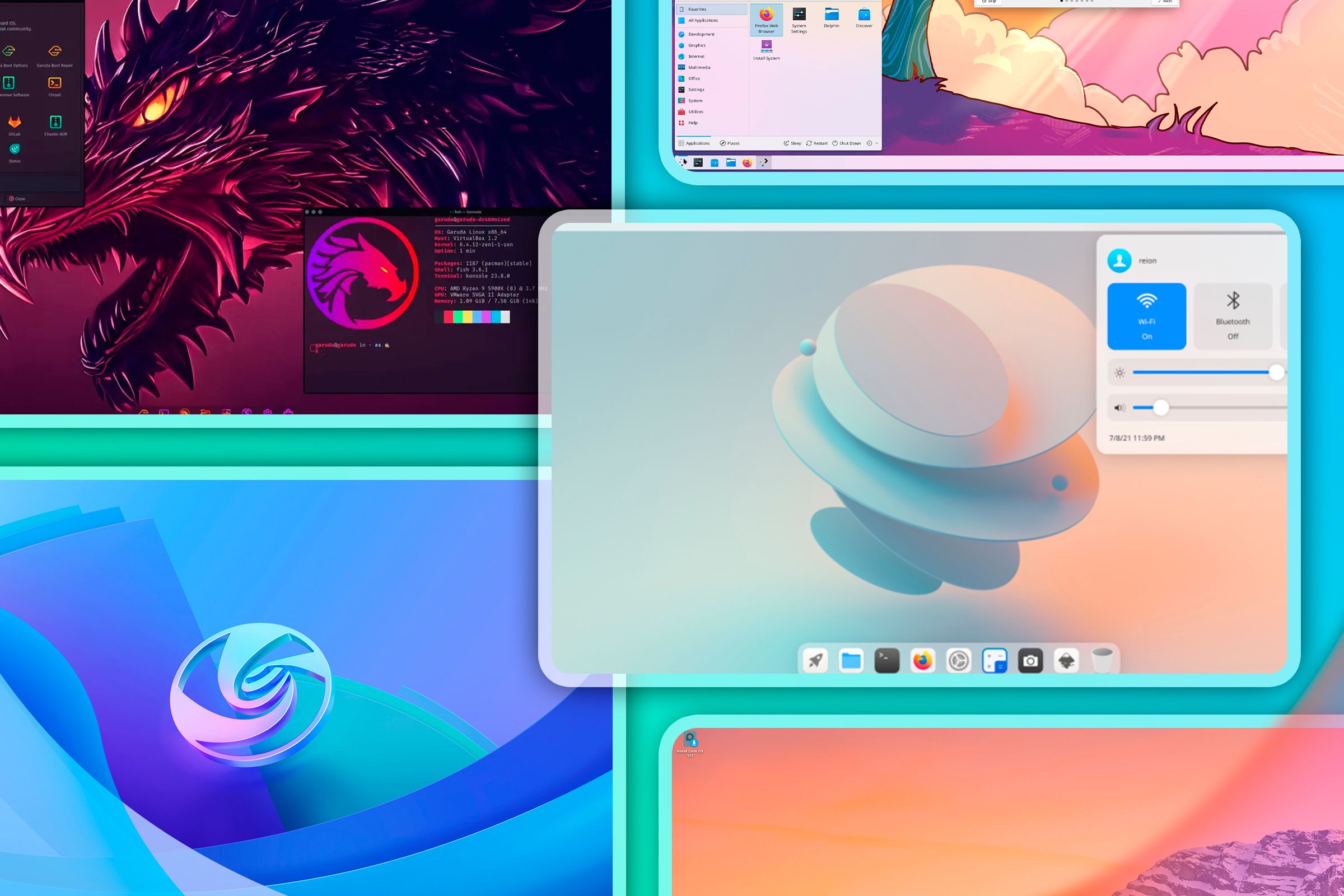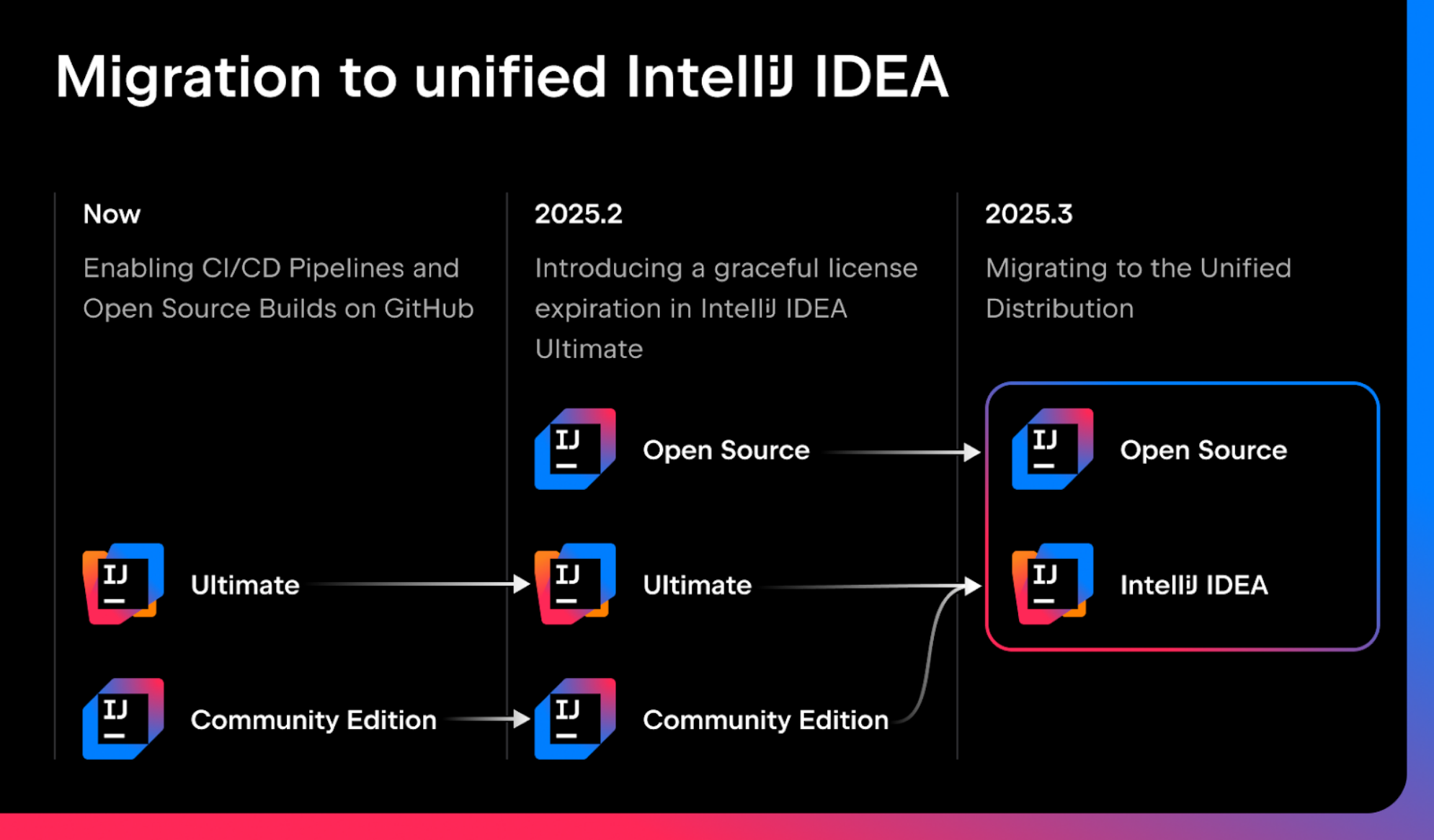JetBrains IntelliJ, the popular integrated development environment for Java and Kotlin, is finally combining its separate Community Edition and Ultimate Edition. The free version is also getting new features, and a fully open-source IDE will be available in the future.
IntelliJ IDEA is currently available in two versions: a Community Edition that is free and mostly open-source software, and the Ultimate Edition that is paid or made available to students and classrooms. That’s not a great experience, and JetBrains admitted in a blog post that it’s “not always clear which edition to install or what to do when a trial expires,” and the complex distribution for education customers “creates friction in the classroom.”
Moving forward, IntelliJ will be available as one download, simply called IntelliJ IDEA. If you already have the Ultimate version, nothing is changing for you besides the name. However, an expired license in the Ultimate edition will no longer kick you out of the IDE entirely—you’ll just be downgraded back to free features. If you’re using the Community Edition, you’ll get an update to the merged version when it’s available in the IntelliJ IDEA 2025.3 release.
Even though the base code for IntelliJ is open-source software, and serves as the foundation for Android Studio, both the Community and Ultimate Editions have proprietary components. The merged IDE will still have those proprietary components, but JetBrains will offer a separate Open Source edition starting with IntelliJ IDEA 2025.2.
This is a similar situation as Chromium with Google Chrome: the open-source version will have fully reproducible builds, complete with GitHub Actions for continuous integration (CI) and continuous deployment (CD). The features that require proprietary components are missing, including Backup and Sync, Package Checker, AI functionality, localization plugins, and WSL integration. Some of that functionality can be added to the Open Source version with free plugins on the JetBrains Marketplace, but not all of them.
As part of this transition, more features are coming to free users. Syntax highlighting will be available for Spring, Jakarta EE, Quarkus, Micronaut, JPA (JPQL/HQL), Thymeleaf, Velocity, FreeMarker, JSP, Kubernetes manifests, and Helm charts. It will also work for non-JVM languages—potentially making IntelliJ more of a direct competitor to Visual Studio Code, which has extensive syntax support for many languages. Free users will also get wizard setup support for Spring, Jakarta EE, Quarkus, Micronaut, and Ktor. Finally, free users will get schema viewing for databases (tables, columns, indexes, etc.), but data access and SQL execution will still require the paid version.

This IDE Actually Made Me a Better Programmer
One IDE to rule them all. You won't want to use anything else.
The upcoming IntelliJ IDEA 2025.2 release will be the first with an Open Source version, and the following 2025.3 release will merge the Ultimate and Community Edition versions. There’s no specific release date for those versions yet.
Source: JetBrains





